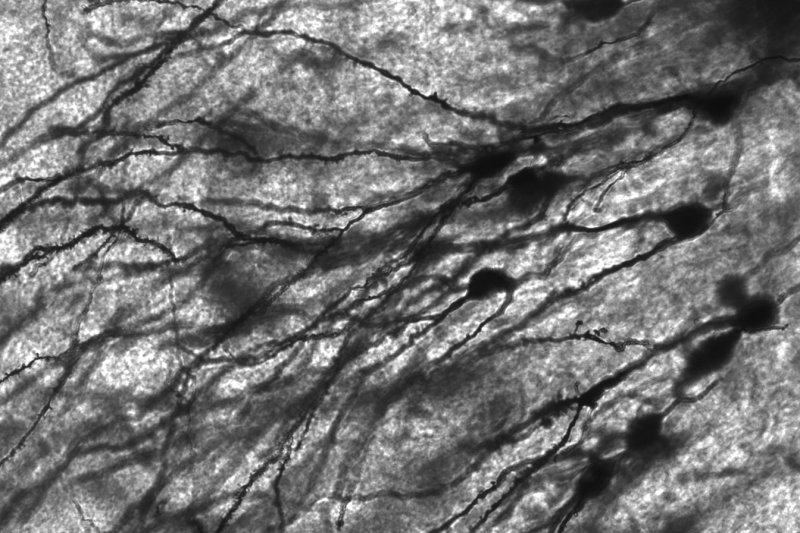Researchers at Rutgers University and Columbia University report a genetic link between epilepsy and depression. Pictured, Golgi stained neurons in the dentate gyrus region of the brain of an epilepsy patient. Photo by
MethoxyRoxy/Wikimedia Commons
Jan. 10 (UPI) -- Evidence of a connection between epilepsy and depression has been uncovered, Rutgers University and Columbia University researchers said in a study released on Wednesday.
A connection between epilepsy and depression has long been suspected, but the study, published in the medical journal Epilepsia, is the first to present evidence that seizures and mood disorders have the same genetic cause.
Researchers studied 192 people from 60 families in which multiple relatives had epilepsy, and compared the family members' lifetime prevalence of mood disorders with that of the U.S. population.
The researchers found increased incidences of mood disorders in those with focal epilepsy, in which seizures begin in just one part of the brain. Mood disorders, though, were not seen to increase in those with generalized epilepsy, in which seizures start on both sides of the brain.
"Mood disorders such as depression are under-recognized and undertreated in people with epilepsy," Gary A. Heiman, a researcher at in the Rutgers-New Brunswick's Generics Department, said in a press release. "Clinicians need to screen for mood disorders in people with epilepsy, particularly focal epilepsy, and clinicians should treat the depression in addition to the epilepsy. That will improve patients' quality of life."
The results of the study support the theory that those with focal epilepsy are susceptible to depression and other mood disorders.
The relationship between epilepsy and depression has been considered since at least 400 BC, when Hippocrates, known as the "father of medicine," wrote that "melancholics ordinarily become epileptics, and epileptics, melancholics: what determines the preference is the direction the malady takes; if it bears upon the body, epilepsy, if upon the intelligence, melancholy."
About 2.75 million people in the United States have some form of epilepsy, and an estimated 16.1 million adults had a major depressive episode in 2015.















